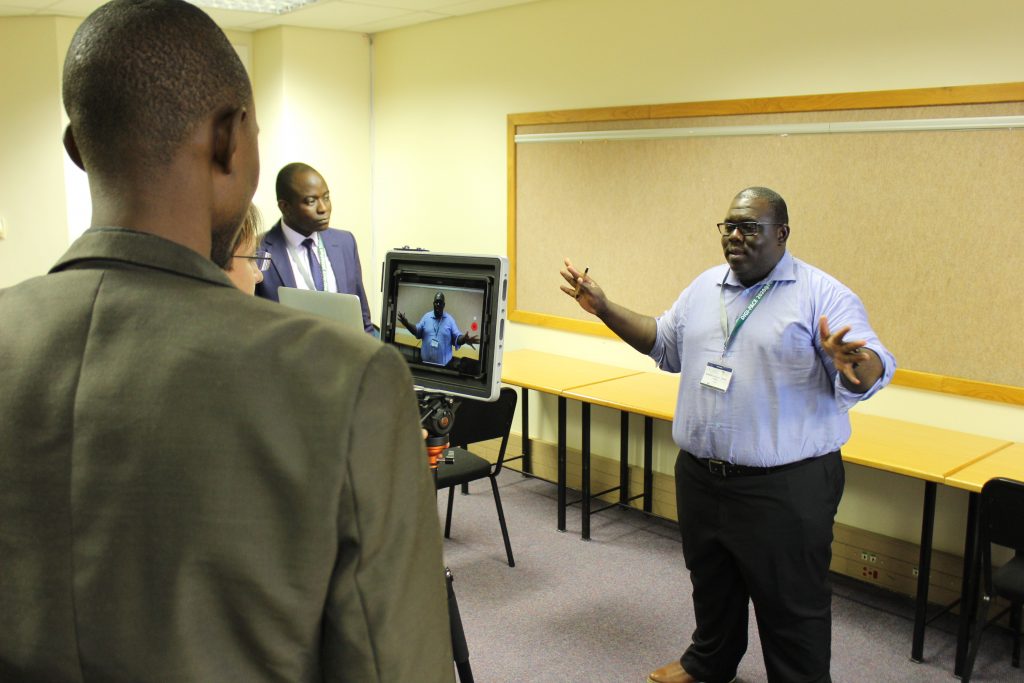This conference will focus on the topics Sustainability, Digital Transfer and COVID-19 and is open for project managers and team leaders from German institutions as well as from their partner institutions abroad, both from TNE and related projects (Centres of African Excellence, DSG German-Language Study Courses, Centers of Excellence in research and education, DAAD-funded Global Centers of health and of climate research, and the DAHZ German-Argentine Center of Higher Education). The conference will be Zoom-based with two channels for participation in German and English.
Registration
Please register before Sunday, 21 November 2021 using the following registration link and fill in your personal data:
https://tnb-2021.daad-worldwide.com/
Note that the meeting documents (e.g., brochure, list of participants) will be based on the data provided in this registration form.
All technical details including the link to the platform will follow in the “Infokit 2 | Logistical Note” one week before the official start of the meeting.
Content
The Virtual Conference will take place as follows:
DAY 1 | 1 December 2021 from 12:00 to 17:00 (UTC+1)
DAY 2 | 2 December 2021 from 12:00 to 16:00 (UTC+1)
The Zoom Meetings room will be available 15 minutes prior to the official start to allow the participants to connect on time.
The focus of the event will be on the following topics:
Sustainability:
Session 1 illustrates the topic with a spotlight on water, sharing the experience made in the 10-year jubilee degree course „Integrated Water Resources Management“ (FU Berlin / German-Kazakh University, DKU), in the „Global Water and Climate Adaptation Centre“ (TU Dresden, RWTH Aachen, IIT Madras, AIT Bangkok, UNU-FLORES), and in the „Corporation Center of Excellence in Marine Sciences, CEMarin“ (JLU Gießen / Bogotá, Colombia).
Session 2 exemplifies the issue of sustainability by looking at the employability of TNE alumni and the interaction of funded TNE projects with local labor markets. The session starts with impressions from a current tracer study at DAAD-funded binational universities, and it goes on to focus on two specific examples: Labor market outcomes at the German-Turkish University (TDU), and the interaction with local industries in the context of the DSG German-Language degree course „Industrial Engineering“ (U Stuttgart in cooperation with TU Cluj-Napoca, Romania).
Digital Transfer:
Session 3 will be focused on questions like, How can digital formats help to improve the visibility of TNE projects? Which are best-practice options of blended learning? An introduction into the topic will be followed by two presentations of innovative digital transfer initiatives: „Boosting Skills by Training and Digitalisation (BooST)“ (HS Wismar and two partner institutions from Indonesia), and the „Mixed Reality Demonstrator“ which was developed and implemented by HTW Berlin and the GIU-AS in Cairo.
COVID-19
Session 4 proposes an exchange about the pandemic experience: In which ways did Covid-19 affect higher education institutions? Which measures were taken to cope with the challenge? What can be said about positive and negative impacts of the challenge in terms of „lessons learned“ for the future? Five exemplary spotlights will be given from projects in Poland, China, Vietnam, Ethiopia, and Argentina.
You must be logged in to rate posts.




